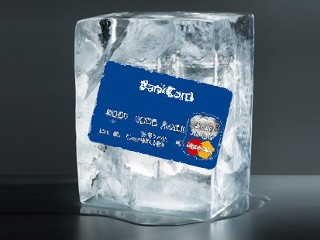Credit Freeze

OK, so the good news is that it wasn’t Ebola that appeared in the ER at Howard University Hospital. A patient who had recently traveled to Nigeria actually had the symptoms associated with malaria. Whew.
That is one less thing to worry about for yesterday, and I checked and my head is still attached to my upper body, so the day is starting out pretty well. Unfortunately, we are stuck in today with tomorrow not far ahead, and three thousand Americans headed for West Africa to build an completely inadequate network of care facilities.
I am worried for them, since the epidemic may have metastasized by then. But in the meantime, I was wondering who the hell had penetrated the electronic vaults of the JP Morgan Chase financial firm.
My ears pricked up when I heard about it- you have, too, I am sure. Something like 75 million people’s personal information was compromised, and apparently nine other financial institutions were also hit. The smart guys are saying it looks like a Russian deal, possibly state-sponsored by that thug Mr. Putin as a warning about sanctions or other grievances with the West.
The news came with a big chill. I have a credit card in there someplace- I am changing the password every time I log on anymore, after some bogus charges showed up last month. I don’t know what else to do about, except keeping everything on one card and monitoring the crap out of it.
The whole password thing is irritating. My pal Santa sends out a weekly update of items he deems significant, and he included some tips on how to create strong passwords that you can actually remember without having to write them down, which of course defeats the purpose.
He wrote: “Common wisdom holds that a password containing uppercase letters, lowercase letters, digits, and punctuation is hard to crack. It turns out that’s not entirely true. Yes, it would be tough for a malefactor to guess a password like N^a&$1nG, but an attacker could crack that one in less than four days. By contrast, cracking a lengthy password like GoodLuckGuessingThisPassword would require almost 18 years of processing.
Many IT departments require passwords of at least eight characters, containing uppercase letters, lowercase letters, and digits. The report points out that, sadly, “Password1” meets these requirements. Not coincidentally, Password1 was the most common single password in the collection under study.”
The key, according to the Sage of the Florida Panhandle, is to Make Them Long. The longer your password (or passphrase) the harder it is for hackers to crack it. Type in a favorite quote or sentence, omitting spaces, and you’ve got a decent passphrase.
Making it harder to crack your password is a start, but I am a little nervous about identity theft. I shred all the paper that comes in the snail mail these days that has anything to do with my credit or finance as it is, but there is still the possibility that some asshole will scoop up personal information and start charging things to your accounts.
You can protest that, of course, and close the card. But a successful attack can result in someone opening up new cards and accounts and blast you into credit outer space.
I tried something this morning that cost $30 before breakfast, and I pass it along for what it is worth. You can actually protect your credit status and stop account inquiries and new account openings with a thing called a “Credit Freeze.”
I did it. I contacted the three credit bureaus separately, paid them ten bucks for the privilege and follow their instructions. You can start the process at the following web pages: Equifax: bit.ly/LQEr1D . Experian: ex.pn/1gimBjg . TransUnion: bit.ly/1eKMRV5 .
I don’t know if it will work, or if the Russians are good enough that they have already compromised the credit bureaus, but what the hell. You have to do something, right?
We can’t seem to stop any of the other lunacy in progress, so I think we ought to do what we can. Take that, Mr. Putin!
I will let you know if it works.
Copyright 2014 Vic Socotra
www.vicsocotra.com
Twitter: @jayare303
